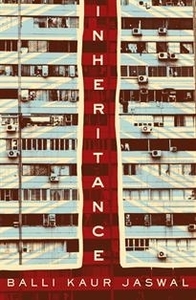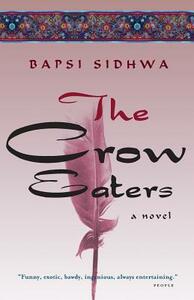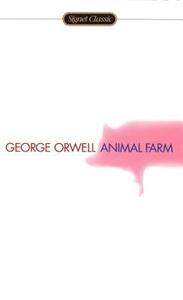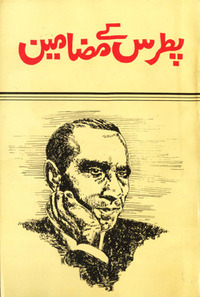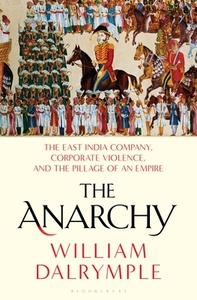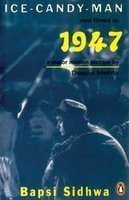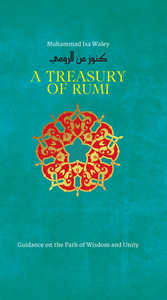You need to sign in or sign up before continuing.
Take a photo of a barcode or cover
aayjaysbookshelf's Reviews (52)
dark
reflective
sad
tense
medium-paced
Plot or Character Driven:
A mix
Strong character development:
Yes
Loveable characters:
Yes
Diverse cast of characters:
Yes
Flaws of characters a main focus:
Yes
I got this book on a preloved books sale, and I had no idea about the writer, the content or the story. But I am glad this turned out to be a good read, and a very new one for me as far as the story background goes.
Set in the developing Singapore of 1970s to 1990s, Inheritance is the story of a Sikh immigrant family that unfolds in parallel to the developing sociopolitical and geographical landscape of Singapore. The book being about a certain community (Sikh)already had my attention, but what made it unusual is the Singaporean element, which I found very odd until I read the book and got to know about the integration of Sikh community in Singapore by the British. Very strange, I know.
Anyways, coming to the story, this is a very well written contemporary fiction that handles sensitive topics like mental illness, identities and family dynamics with both clarity and grace. You could feel a palpable tension throughout the book as the family struggles to stay together yet is forced to tear apart, and the calmness of the resolution towards the end. I particularly liked how Balli Kaur's prose had a poetic quality to it, and how intricately it captured the micro behaviours and the subtle shifts and linked it with the slowly transforming landscape of Singapore of that time. The book offers an insight into not just the struggles of an immigrant family, but also the customs and traditions that are both a binding factor for a desi community yet also very limiting in a lot of ways. There is a tinge of sadness throughout the book, and the end is kept elusive, too, so pick this up if you're in the mood for a sad read, I'd say. Overall, a very good read. Balli Kaur's words are impactful, the story moves at a good pace and the ends are tied tightly ; a quality I've recently come to admire in books. Would like to read more of her works now.
Set in the developing Singapore of 1970s to 1990s, Inheritance is the story of a Sikh immigrant family that unfolds in parallel to the developing sociopolitical and geographical landscape of Singapore. The book being about a certain community (Sikh)already had my attention, but what made it unusual is the Singaporean element, which I found very odd until I read the book and got to know about the integration of Sikh community in Singapore by the British. Very strange, I know.
Anyways, coming to the story, this is a very well written contemporary fiction that handles sensitive topics like mental illness, identities and family dynamics with both clarity and grace. You could feel a palpable tension throughout the book as the family struggles to stay together yet is forced to tear apart, and the calmness of the resolution towards the end. I particularly liked how Balli Kaur's prose had a poetic quality to it, and how intricately it captured the micro behaviours and the subtle shifts and linked it with the slowly transforming landscape of Singapore of that time. The book offers an insight into not just the struggles of an immigrant family, but also the customs and traditions that are both a binding factor for a desi community yet also very limiting in a lot of ways. There is a tinge of sadness throughout the book, and the end is kept elusive, too, so pick this up if you're in the mood for a sad read, I'd say. Overall, a very good read. Balli Kaur's words are impactful, the story moves at a good pace and the ends are tied tightly ; a quality I've recently come to admire in books. Would like to read more of her works now.
Moderate: Mental illness, Toxic relationship
emotional
funny
lighthearted
reflective
relaxing
sad
slow-paced
Plot or Character Driven:
Character
Strong character development:
Yes
Loveable characters:
Yes
Diverse cast of characters:
Yes
Flaws of characters a main focus:
Yes
Having read Bapsi Sidhwa's Ice Candy Man earlier, I knew I could hope for a lovely storytelling and I wasn't disappointed. Interestingly, The Crow Eaters had been in my TBR even before Ice Candy Man but it was only now that I got my hands on it and I really enjoyed it.
Sidhwa's finesse with novel writing is quite evident in this very Parsee-centric, pre partition story of a Parsee family that migrated to Lahore and established themselves there from a humble background to a powerful one. The novel mainly revolves around the life of Fareedoon or Freddy Junglewalla and the people associated with him, and written in a humourous, satirical manner which made me laugh quite a number of times in the first half of the novel. Through this novel, you get to have a deeper insight into the lives, traditions and customs of Parsees or Zoroastrians, and I particularly loved how subtle yet poignant Sidhwa was in her expression of both love for her community and constructive criticism on some of its elements, and how all of this was portrayed through fiction.
I liked the details, the characters drawn in a way that I could visualise them, the story having no loose ends, the way Sidhwa builds on the quirks of the main characters throughout the story to use it as a climax later on, the detailed mention of Lahore and Bombay of 1900s, the satire, the glance at the British India and the irony of British empire. The writing of this novel have the beauty of classic writing but without the difficulty and jargons, and the relevance of it being set in this region makes it all the more interesting.
Overall, a really nice novel. Though I would have liked if it talked more about Yazdi and his character arc; I felt a few loose ends were left in his part of the story, and the ending seemed a bit abrupt to me after the slow and detailed built-up throughout the novel. If you enjoy slice-of-life family sagas, especially ones that focus on groups (in this case Parsis in pre-independence Lahore) that are typically underrepresented in literature, then I’d recommend checking this one out.
Sidhwa's finesse with novel writing is quite evident in this very Parsee-centric, pre partition story of a Parsee family that migrated to Lahore and established themselves there from a humble background to a powerful one. The novel mainly revolves around the life of Fareedoon or Freddy Junglewalla and the people associated with him, and written in a humourous, satirical manner which made me laugh quite a number of times in the first half of the novel. Through this novel, you get to have a deeper insight into the lives, traditions and customs of Parsees or Zoroastrians, and I particularly loved how subtle yet poignant Sidhwa was in her expression of both love for her community and constructive criticism on some of its elements, and how all of this was portrayed through fiction.
I liked the details, the characters drawn in a way that I could visualise them, the story having no loose ends, the way Sidhwa builds on the quirks of the main characters throughout the story to use it as a climax later on, the detailed mention of Lahore and Bombay of 1900s, the satire, the glance at the British India and the irony of British empire. The writing of this novel have the beauty of classic writing but without the difficulty and jargons, and the relevance of it being set in this region makes it all the more interesting.
Overall, a really nice novel. Though I would have liked if it talked more about Yazdi and his character arc; I felt a few loose ends were left in his part of the story, and the ending seemed a bit abrupt to me after the slow and detailed built-up throughout the novel. If you enjoy slice-of-life family sagas, especially ones that focus on groups (in this case Parsis in pre-independence Lahore) that are typically underrepresented in literature, then I’d recommend checking this one out.
dark
sad
tense
slow-paced
Plot or Character Driven:
A mix
Strong character development:
No
Loveable characters:
No
Diverse cast of characters:
Yes
Flaws of characters a main focus:
Yes
I started this book with high expectations and it didn't come through at all. While the start was promising, with Karachi's bustling landscape in the background interchanging with Portsmouth's(UK) bland one as the story shifted from one character to another, the novel soon delved into confusion after confusion as it struggled to keep up with the irony of its rapidly changing storyline and extremely slow paced plot.
The Runaways is a story of 3 young people, 2 from Karachi (though of vastly different backgrounds) and 1 from UK, supposedly on a quest to 'find themselves' and exploring their identity. The writer sure does a nice job at attempting to explain the identity crises, the social differences and its consequences, and the fatal grip of needing peer approval/validation, and the story would have turned out fine with just these elements. But when it delved into topics like Islamic extremism, jihad, LGBT, the complexities of which demanded a solid plotline and well crafted characters to make the tale gripping and understandable, the writer failed miserably at this. There was no plot, no storyline, no character development, everything barely touched even the surface and left me more frustrated than before. It felt like putting in a bunch of complex topics together and blending them in a juicer mixer, instead of handpicking each ingredient carefully and deciding intentionally which to put in what amount. The plot was painfully slow when the characters reached Iraq, and felt like 60% of the book was spent just travelling through the barren desert. I kept waiting for it to unfold in a way which was explainable, for an end that would tie the pieces together and present a complete puzzle, but none of that came. There was no climax either, all too bland and predictable. And how EXACTLY the characters were transported from their own cities to Iraq remained an (unneeded) mystery, too, except for Sunny maybe.
And might I add, this novel felt like just another brown writer's attempt at west-washing the jihad narrative for appeasing the Western audience. The radicalization concept needed far deeper context for it be believable than explored in the book. But it wasn't still as disappointing as the sheer lack of a good novel writing. It felt like I kept waiting for a climax, an explanation that never was to come anyway. Very disappointing.
Giving it 2 stars rating - 1 for the mention of Karachi and the familiarity of its areas, and 1 for the author's attempt at explaining the identity crises and its background. Other than that, not a good read at all.
The Runaways is a story of 3 young people, 2 from Karachi (though of vastly different backgrounds) and 1 from UK, supposedly on a quest to 'find themselves' and exploring their identity. The writer sure does a nice job at attempting to explain the identity crises, the social differences and its consequences, and the fatal grip of needing peer approval/validation, and the story would have turned out fine with just these elements. But when it delved into topics like Islamic extremism, jihad, LGBT, the complexities of which demanded a solid plotline and well crafted characters to make the tale gripping and understandable, the writer failed miserably at this. There was no plot, no storyline, no character development, everything barely touched even the surface and left me more frustrated than before. It felt like putting in a bunch of complex topics together and blending them in a juicer mixer, instead of handpicking each ingredient carefully and deciding intentionally which to put in what amount. The plot was painfully slow when the characters reached Iraq, and felt like 60% of the book was spent just travelling through the barren desert. I kept waiting for it to unfold in a way which was explainable, for an end that would tie the pieces together and present a complete puzzle, but none of that came. There was no climax either, all too bland and predictable. And how EXACTLY the characters were transported from their own cities to Iraq remained an (unneeded) mystery, too, except for Sunny maybe.
And might I add, this novel felt like just another brown writer's attempt at west-washing the jihad narrative for appeasing the Western audience. The radicalization concept needed far deeper context for it be believable than explored in the book. But it wasn't still as disappointing as the sheer lack of a good novel writing. It felt like I kept waiting for a climax, an explanation that never was to come anyway. Very disappointing.
Giving it 2 stars rating - 1 for the mention of Karachi and the familiarity of its areas, and 1 for the author's attempt at explaining the identity crises and its background. Other than that, not a good read at all.
challenging
emotional
funny
informative
lighthearted
reflective
relaxing
sad
medium-paced
Plot or Character Driven:
N/A
Strong character development:
N/A
Loveable characters:
No
Diverse cast of characters:
Yes
Flaws of characters a main focus:
N/A
بنگالی چھوٹے افسانوں کا مجموعہ ، "بنگلہ دیش کی منتخب کہانیاں" پاکستان اکادمی ادبیات کی طرف سے ادبی ترجمے کی کاوشوں کیں سے ایک ہے، جس میں دورِ حاضر و ماضی دونوں کے افسانے موجود ہیں۔ 20 کے قریب افسانوں میں بنگالی طرزِ زندگی اور معمولات کا ذکر ہے۔ ڈھاکہ ، کلکتہ ، چٹاگنگ، کھلنہ، سلہٹ، رنگپور جیسے بنگالی شہروں کے ساتھ ساتھ دریا ، مچھلی اور چاول کا ذکر بھی ہے، جو بنگلہ دیش سے دور بیٹھے بھی وہاں کی سیر کرا دیتا ہے۔
بنگلہ کہانیوں لیں مجھے سائنس کی طرف رجحان کافی نظر آیا جو مجھے پاکستانی افسانوں سے بہت مختلف لگا۔ غیر انسانی مخلوقات اور طاقوں کا ذکر بھی ساتھ ہے، جو شائد بذاتِ خود انوکھا نہیں ہے، لیکن اس بات کی نشاندھی ضرور کرتا ہے کہ ایک عام بنگلہ دیشی زندگی میں ان باتوں کا کافی تذکرہ ہے۔
افسانے کسی بھی سماج یا جگہ کی کہانیوں کا ایک آئینہ ہوتے ہیں۔ بنگلہ دیشی افسانوں سے یہ میرا پہلا واسطہ اچھا رہا، آگے اور بنگالی ادب پڑھنے کی خواہش ہوگی۔
بنگلہ کہانیوں لیں مجھے سائنس کی طرف رجحان کافی نظر آیا جو مجھے پاکستانی افسانوں سے بہت مختلف لگا۔ غیر انسانی مخلوقات اور طاقوں کا ذکر بھی ساتھ ہے، جو شائد بذاتِ خود انوکھا نہیں ہے، لیکن اس بات کی نشاندھی ضرور کرتا ہے کہ ایک عام بنگلہ دیشی زندگی میں ان باتوں کا کافی تذکرہ ہے۔
افسانے کسی بھی سماج یا جگہ کی کہانیوں کا ایک آئینہ ہوتے ہیں۔ بنگلہ دیشی افسانوں سے یہ میرا پہلا واسطہ اچھا رہا، آگے اور بنگالی ادب پڑھنے کی خواہش ہوگی۔
challenging
dark
reflective
sad
tense
medium-paced
Plot or Character Driven:
A mix
Strong character development:
Yes
Loveable characters:
No
Diverse cast of characters:
Yes
Flaws of characters a main focus:
Yes
I was looking forward to read this book ever since I read Orwell's 1984 and Animal Farm lived up to its expectation. A timeless classic that explores the disastrous effect of totalitarianism, Animal Farm is a story simplifically told with deeper meanings. Orwell's writing is simple in narration, but effective in message. The story follows the Manor Farm which is like any other farm until a revolution happens and the farm owner, the human, is ousted by the farm animals and comes in its place an authority of the animals, a regime that is promised to be 'by the animals and for the animals'. As glittery and promising as it sounds, the plot soon thickens when corruption, greed and exploitation finds its way in, and through it is crafted a timeless story which is applicable to the world systems even today, maybe more relevant than ever before.
What makes this book a classic is its relevance, and that is also the irony of it. Written originally in 1945 after the WWII, Orwell's observation and analysis is well reflected in this book which is also a commentary on the sociopolitical environment of that time, which remains valid to date. One can always rely on Orwell for a crisp, concise narration that leaves its imprint deeply. A masterpiece of dystopian literature that everyone should read, at least once in his life, if you want to understand the world and its systems better.
What makes this book a classic is its relevance, and that is also the irony of it. Written originally in 1945 after the WWII, Orwell's observation and analysis is well reflected in this book which is also a commentary on the sociopolitical environment of that time, which remains valid to date. One can always rely on Orwell for a crisp, concise narration that leaves its imprint deeply. A masterpiece of dystopian literature that everyone should read, at least once in his life, if you want to understand the world and its systems better.
emotional
informative
reflective
sad
medium-paced
Plot or Character Driven:
A mix
Strong character development:
N/A
Loveable characters:
N/A
Diverse cast of characters:
Yes
Flaws of characters a main focus:
Complicated
"فلسطین کی منتخب کہانیاں" بیشتر چھوٹی کہانیوں کا ایک مجموعہ ہے جو اردو میں ترجمہ کیا گیا ہے۔ چونکہ ترجمے کے دوران اصل کہانی کی ترجمانی کھو جانے کا اندیشہ رہتا ہے، ایسا ہی کچھ مجھے اس کتاب میں بھی محسوس ہوا۔ یا شاید فلسطینی ادب سے یہ میرا پہلا واسطہ تھا اور اس سے واقفیت میں تھوڑا عرصہ لگ سکتا ہے۔
بہرحال ، ترجمے کے زریعے ہی صحیح ، لیکن قابلِ ذکر کاوش ہے جو پاکستانی گورنمنٹ کی طرف سے کی گئی ہے۔ اس کتاب کی زیادہ تر کہانیاں کم از کم 40 سے 50 سال پرانی ہیں، لیکن پھر بھی اسرائیلی جارحیت اور اجارہ داری کے نقوش تمام ہی کہانیوں میں کہیں نہ کہیں ، کسی نہ کسی درجے میں نظر آتے ہیں ۔ پڑھ کے یہ بھی اندازہ ہوا کہ فلسطینی طور طریقہ، اطوار اور سماجی خصوصیات ہمارے اپنے دیسی/مشرقی معاشرے سے کافی ملتی جلتی ہیں ۔ تقریباً ساری ہی کہانیاں روزمرہ، سادی زندگی سے منسلک تھیں۔
کہانیاں بہت ہی اہم ہوتی ہیں۔ ایک معاشرے اور تمدن کے زندہ رہنے کے لیے جہاں مادی ترقی ضروری ہے، وہیں اس کو محفوظ کرنے کے لیے یہ کہانیاں ضروری ہیں۔ ایک اچھی کتاب جو ایک بار پڑھنے کے لیے موزوں ہے۔
بہرحال ، ترجمے کے زریعے ہی صحیح ، لیکن قابلِ ذکر کاوش ہے جو پاکستانی گورنمنٹ کی طرف سے کی گئی ہے۔ اس کتاب کی زیادہ تر کہانیاں کم از کم 40 سے 50 سال پرانی ہیں، لیکن پھر بھی اسرائیلی جارحیت اور اجارہ داری کے نقوش تمام ہی کہانیوں میں کہیں نہ کہیں ، کسی نہ کسی درجے میں نظر آتے ہیں ۔ پڑھ کے یہ بھی اندازہ ہوا کہ فلسطینی طور طریقہ، اطوار اور سماجی خصوصیات ہمارے اپنے دیسی/مشرقی معاشرے سے کافی ملتی جلتی ہیں ۔ تقریباً ساری ہی کہانیاں روزمرہ، سادی زندگی سے منسلک تھیں۔
کہانیاں بہت ہی اہم ہوتی ہیں۔ ایک معاشرے اور تمدن کے زندہ رہنے کے لیے جہاں مادی ترقی ضروری ہے، وہیں اس کو محفوظ کرنے کے لیے یہ کہانیاں ضروری ہیں۔ ایک اچھی کتاب جو ایک بار پڑھنے کے لیے موزوں ہے۔
funny
lighthearted
reflective
relaxing
"پطرس کے مضامین" پڑھنے کا ارادہ کافی عرصے سے تھا لیکن اتفاق ابھی چند دنوں پہلے ہوا، جب یکے بعد دیگرے کچھ مشکل کتابیں پڑھنے کے بعد دل ذرا تلملایا اور کچھ ہلکہ پڑھنے کا دل چاہا۔
پطرس کا مزاح سادگی کے ساتھ کچھ ایسی تازگی رکھتا ہے کہ بغیر کھلکھلاۓ آپ رہ نہیں سکتے ۔ کہیں دھیمی مسکراہٹ تو کہیں بلند قہقہے ، پوری کتاب پڑھتے ہوئے کہیں بھی بوریت کا احساس نہیں ہوتا۔ کہیں لاہور کی سڑکوں پہ طنز ہے، کہیں اپنی ہی حماقتوں کا مذاق ، کہیں دوستوں کی ٹانگ کھینچی گئی ہے، تو کہیں اپنی برسوں پرانی خواہش کے ادھورا رہ جانے کا غم، پطرس کی لکھائی میں روزمرہ کے امور میں ہی مزاح کا پہلو شامل ہے جو ان کی تحریروں کو 70 سال سے زائد عرصہ گزر جانے کے باوجود تازہ رکھتا ہے۔
آسان اردو کا استعمال اس کتاب کو ہر قسم کے قاری کے لیے موزوں بناتا ہے۔ ایک نہایت مزے کی کتاب جو آپ کو اگر ہنساۓ نہیں تو کم از کم مسکرانے پہ مجبور ضرور کریگی۔
پطرس کا مزاح سادگی کے ساتھ کچھ ایسی تازگی رکھتا ہے کہ بغیر کھلکھلاۓ آپ رہ نہیں سکتے ۔ کہیں دھیمی مسکراہٹ تو کہیں بلند قہقہے ، پوری کتاب پڑھتے ہوئے کہیں بھی بوریت کا احساس نہیں ہوتا۔ کہیں لاہور کی سڑکوں پہ طنز ہے، کہیں اپنی ہی حماقتوں کا مذاق ، کہیں دوستوں کی ٹانگ کھینچی گئی ہے، تو کہیں اپنی برسوں پرانی خواہش کے ادھورا رہ جانے کا غم، پطرس کی لکھائی میں روزمرہ کے امور میں ہی مزاح کا پہلو شامل ہے جو ان کی تحریروں کو 70 سال سے زائد عرصہ گزر جانے کے باوجود تازہ رکھتا ہے۔
آسان اردو کا استعمال اس کتاب کو ہر قسم کے قاری کے لیے موزوں بناتا ہے۔ ایک نہایت مزے کی کتاب جو آپ کو اگر ہنساۓ نہیں تو کم از کم مسکرانے پہ مجبور ضرور کریگی۔
challenging
dark
informative
reflective
sad
tense
slow-paced
My first ever proper history read and what a read it was! Took me 3 whole months to finish this book, and I doubt if it could have been done any earlier. It's a wonderful read, but do expect it to be quite dense owing to its genre.
Dalrymple's Anarchy is a book not just about the East India Company but also of India's own history as a whole, starting from 1600s with the glorious Mughal rule and ending at 1800 with the official end of a free nation state of India. Dalrymple's writing flows in an easy, narrative way, and even though it did get very dense with all the details, but the story like characteristic of this book made it much more palatable than had it been a regular history book. The different dynasties under the Mughal rule were introduced as characters with their own circumstances and nuances, and each character's storyline followed throughout the book and concluded appropriately. The effect of Afghan invasion, Maratha raids and rules, Bengal's decisive role, the Sultans of Mysore, Mughal's power and eventual helplessness, and the rise of East India Company from a mere trading company to a global conglomerate runs parallel throughout the book. The writing is compelling, and the details harrowing, specially the chapters on Bengal famine and the Corpse of India.
It was also eye-opening in a lot of ways. Reading this book made me realize that the commonly attributed lament about Englishmen using 'divide and rule' strategy to break the subcontinent is not entirely true. No one could have possibly just come as an outsider and broken the largest empire of its time that easily, if it were not already broken from inside. The truth is, India was already DIVIDED in spirit by the many civil wars and that gave the outsiders an opportunity to infiltrate and RULE. An empire ruling over almost an entire continent had needed far capable and strong leaders and a much greater unity for it to stay intact and that was not possible with differing powers rising up on their own and claiming their separate rules.
Overall, a very good read. A slow, deliberate one that gives you a detailed insight into the many perspectives and events that unfolded the path for an outside company to fix its talons in Mughal India and change it into British India, the effects of which remain to date.
Dalrymple's Anarchy is a book not just about the East India Company but also of India's own history as a whole, starting from 1600s with the glorious Mughal rule and ending at 1800 with the official end of a free nation state of India. Dalrymple's writing flows in an easy, narrative way, and even though it did get very dense with all the details, but the story like characteristic of this book made it much more palatable than had it been a regular history book. The different dynasties under the Mughal rule were introduced as characters with their own circumstances and nuances, and each character's storyline followed throughout the book and concluded appropriately. The effect of Afghan invasion, Maratha raids and rules, Bengal's decisive role, the Sultans of Mysore, Mughal's power and eventual helplessness, and the rise of East India Company from a mere trading company to a global conglomerate runs parallel throughout the book. The writing is compelling, and the details harrowing, specially the chapters on Bengal famine and the Corpse of India.
It was also eye-opening in a lot of ways. Reading this book made me realize that the commonly attributed lament about Englishmen using 'divide and rule' strategy to break the subcontinent is not entirely true. No one could have possibly just come as an outsider and broken the largest empire of its time that easily, if it were not already broken from inside. The truth is, India was already DIVIDED in spirit by the many civil wars and that gave the outsiders an opportunity to infiltrate and RULE. An empire ruling over almost an entire continent had needed far capable and strong leaders and a much greater unity for it to stay intact and that was not possible with differing powers rising up on their own and claiming their separate rules.
Overall, a very good read. A slow, deliberate one that gives you a detailed insight into the many perspectives and events that unfolded the path for an outside company to fix its talons in Mughal India and change it into British India, the effects of which remain to date.
dark
emotional
reflective
sad
tense
medium-paced
Plot or Character Driven:
A mix
Strong character development:
Yes
Loveable characters:
Yes
Diverse cast of characters:
Yes
Flaws of characters a main focus:
No
A wonderful novel, crafted with brilliant storytelling and compelling narrative. 'Ice Candy man' is a historical fiction novel on the partition of India, but from the perspective of a Parsi child, which makes it both interesting and unbiased. With the cast of characters diverse, and the atmosphere of pre-partition India in the background, the novel moves with a slow pace at the start, spanning across the landscape of 40s' Lahore, and it is only later I understood that the initial slow pace was intentional by the author, and amazingly done. My most favorite part about it has to be the expression of the subtle yet poignant changes the Subcontinent went through, day by day, week by week, month by month, until suddenly it was unrecognizable. Different than all the previous partition stories I have read, this one was fresh in its mostly neutral view of partition as seen from a Parsi household. It was also very intriguing because when it comes to partition stories, it's only Muslim, Hindus and Sikhs involved, so to learn about it from a different lens was something. The visual details are harrowing, physically painful even, when the subcontinent was broken, quite literally, into 2 parts. The turmoil that preceded and followed, and is evident to date in our microbehaviours is uncanny, it's almost like it became part of our genetic makeup. The commentary on the sociopolitical environment is as crisp as it can be, and told through a very engrossing story and characters running side by side. I loved, loved, loved how the main characters were drawn, to their littlest of details, and the antics of one character built throughout the story for it become the main ingredient of the climax. Sidhwa's finesse with storytelling and handling sensitive topics like partition with the utmost grace and skill, to tell a story without keeping it black and white, to narrate a tale that pierces through and keep the readers hooked is brilliant. All in all, aLoved reading this.
hopeful
informative
inspiring
reflective
slow-paced
I started this book with high expectations and it didn't come through :/ The book is written in a simple language, and is divided in short chapters, each about a poem of Rumi, basically an explanation of it. I was expecting more of a deep dive into Rumi's work, and the book actually started off strong with the intro, Rumi's history, his inspiration for poetry and his impact on the then society. However, it wasn't really successful in delivering the magnanimity of Rumi's work, and it took too much effort to read the book, making me leave it midway, sadly. I liked that it's written in short chapters, though, but the topics and explanations in all those chapters felt rather repeated, monotonous and a bit too preachy. It would have been great if the writer had explored the actual content of the poetries, rather than giving his own opinion of it all. Overall, a disappointing read :/
